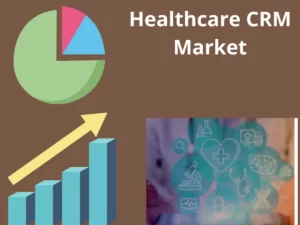© 2021 All rights reserved
Datavagyanik- Your Research Partner

The research report titled “Healthcare CRM Market, Business and Opportunity Analysis” published by Datavagyanik presents a detailed analysis of the Healthcare CRM Market with country-wise market statistics, qualitative insights and market player analysis. One of the prime objectives of the report is to provide an assessment of the market potential, market revenue, growth and business opportunities for Healthcare CRM Market in each country.

The report analyzes Healthcare CRM Market from demand as well as supply side. In supply side analysis, we reach out to the Healthcare CRM Market players to collect information on their portfolio, revenue, target customers and other insights. During this process, paid interviews and surveys are conducted for obtaining and validating the data pointers. We also deep dive into the available paid industry databases, research studies, white papers and annual reports.
As a part of our demand side analysis, we reach out to the end users of Healthcare CRM Market, to gauge the application areas, demand trends and similar insights.
This business analysis report on the Healthcare CRM Market presents a regional as well as country level analysis. The regions covered in the report are – North America, Europe, Asia Pacific and Rest of the World. In these four regions, all the countries have been covered in detail with information on Healthcare CRM Market size, trends and forecast.
The report covers Healthcare CRM Market revenue and forecast for the period (2021 – 2028), by regions, (further split into countries):
| Year | 2021 | 2022 | 2023 | 2024 | 2025 | 2026 | CAGR (2021-2028) |
| Healthcare CRM Market Revenue ($Million) | XX | XX | XX | XX | XX | XX | XX |
| Total | XX | XX | XX | XX | XX | XX | XX |
*Note – Country level break-down has been covered in the report
There is an entire data collection and validation framework that Datavagyanik follows to provide you with authentic information. We connect to industry experts across various countries to understand market trends and demand pattern. The same is done through paid interviews and surveys.
Our internal team of analysts are experts in studying market pattern, mining data and extracting useful information from different paid as well as freely available sources. Datavagyanik has exhaustive internal data base with information on markets, market players and other macro and micro economic indicators that impact industries.
“Every Organization is different and so are their requirements”- Datavagyanik







© 2021 All rights reserved
Datavagyanik- Your Research Partner
Add the power of Impeccable research, become a DV client